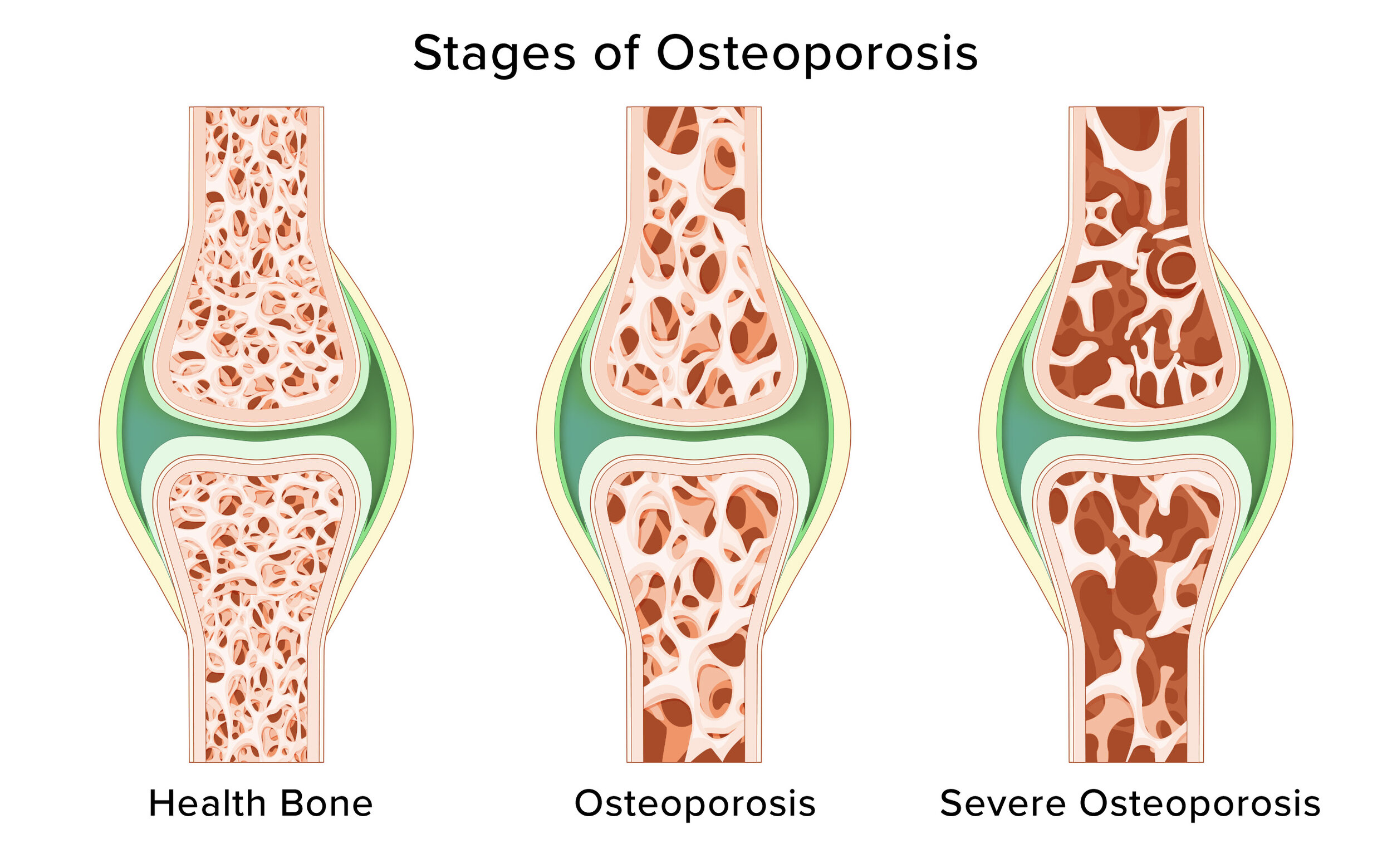The endocrine system is made up of the major glands, including the pancreas, thyroid, pituitary and adrenal glands that produce and regulate hormones in the body. Hormones produced by the endocrine system send signals to organs all over your body. These signals affect various body functions like growth and development, metabolism, reproduction, sexual function and mood.
What are endocrine disorders?
If your hormone levels are too high or too low, or your body is not responding to hormones the way that it is supposed to, you may have an endocrine disorder. The most common endocrine disorder is diabetes. Other common endocrine disorders include:
Adrenal disorders – caused by over or under producing hormones; or damage or poor function of the adrenal glands or a nodule internally.
Osteoporosis – a common disease that makes bones weaker and more likely to fracture or break than normal bone.
Testosterone deficiency – when the body doesn’t make enough testosterone (the male sex hormone).
Estrogen deficiency – usually in post menopausal women
How do I know if I have an adrenal disorder?
Symptoms of adrenal gland disorders tend to be quite general and may include dizziness, weight gain or loss, feeling excessively tired, nausea, low blood sugar, irregular periods, muscle and joint pain. Symptoms may be subtle at first and get worse and more frequent over time.
Speak to your GP if you have any recurring health concerns. They may order some blood tests and imaging and, depending on the results, may refer you to an endocrinologist. Our team can give you all the information you need about your specific diagnosis, treatment plan and how to best manage your health if you have an adrenal disorder.
Medical treatments of adrenal disorders
Our specialists will investigate your medical history, symptoms and results of any diagnostic tests before recommending any treatment. Please speak to your GP to get a referral to see one of our experienced endocrinologists to discuss your condition further.
Osteoporosis – why bone health is a serious health concern
Osteoporosis is a disease that makes bones weak and brittle. It’s caused when bone tissues break down faster than your body can replace them. In a person with osteoporosis, even a slight bump or fall can cause a serious fracture or medically, we called it minimal trauma fracture. However, many people don’t know they have osteoporosis – which puts you at greater risk of injury.
Falls are a major source of injury in older people, and osteoporosis makes it more likely that you will be seriously injured after even a minor fall.
Breaking a bone is not only painful – it’s a serious medical emergency that that usually requires an emergency visit to hospital, admission for surgery, a hospital stay, rehabilitation and home care. It’s very disruptive and can seriously impact your level of independence and mobility. Therefore, we as endocrinologists focus on preventive treatment to reduce your fracture risk.
Minimal trauma fracture screening for osteoporosis
While there is no cure for osteoporosis, early investigation is critical to help diagnose osteoporosis and prevent more fractures. The aim of screening and treatment for osteoporosis is to strengthen your bones so that they are less likely to break, and to prevent falls that could damage your bones.
If you are over 50 years and have broken a bone from a minor bump or fall (a minimal fracture), you should be investigated for underlying osteoporosis. Minimal trauma fracture screening is not yet routine in Australia, but it can greatly improve how you manage your condition.
Screening for secondary causes
Screening for secondary causes of osteoporosis is an important step to understand if there are other conditions that may be contributing to osteoporosis. This includes many endocrine disorders that change the way hormones are produced and used in the body. These include:
Changes in hormone levels – when women reach menopause, their estrogen levels drop significantly, which affects new bone production. Post-menopausal women are at a high risk for osteoporosis. In men, a drop in testosterone levels can lead to bone loss.
Parathyroid problems – having too much parathyroid hormone (hyperparathyroidism) can cause osteoporosis because the excess hormone extracts calcium from your bones.
Thyroid problems – overproduction of thyroid hormone (hyperthyroidism) may also lead to bone loss.
Medications – certain medications may cause osteoporosis so extra care and management may be needed if you need to take them for other conditions.
What is the treatment for osteoporosis?
While there is no cure for osteoporosis, antiresorptive drugs can slow down progression of the disease and increase bone strength. At South Sydney Medical Specialists, we have experienced endocrinologists who will estimate your risk of breaking a bone before suggesting treatment. All treatment has its pros and cons and we will discuss these will you. If your risk isn't high, treatment might not include medication and might focus instead on modifying risk factors for bone loss and falls.
Medical treatments for testosterone deficiency
Testosterone is part of a group of hormones called androgens that affect appearance and sexual development. Testosterone is also important for bone and muscles, energy, sex drive and general mood.
Testosterone production typically decreases with age or prior medication use. Other times, certain health problems play a role in lowering testosterone levels (e.g obesity). Prescribed testosterone therapy can help with medically diagnosed testosterone deficiency. Speak to our endocrinologist about whether you qualify for testosterone replacement therapy.
Medical treatments for estrogen deficiency
Menopause requires no medical treatment but when it occurs at a young age, hormone replacement therapy could be essential. Treatments mainly focus on relieving your signs and symptoms and preventing or managing chronic conditions that may occur with aging. We have endocrinologists who have a special interest in this area. We can discuss this with you when you make an appointment.



